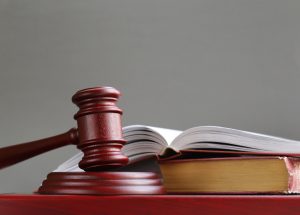Most people, especially first-time offenders, are very nervous about the initial meeting with their criminal defense attorney. After all, these are the meetings that set the tone for the rest of the legal process. This anxiety often leaves clients asking a lot of questions, like “What can I expect?”, “What am I responsible for?”, “What do I ask my lawyer?”, “What do I bring with me?” So, if you are preparing to see a criminal defense lawyer for your pending charges, you might be asking these very same questions right now.
Continue reading to learn everything you need to know about meeting with your criminal defense lawyer for the first time.

What to Expect at Your First Meeting
Your first meeting with your criminal defense attorney is simply a consultation. That means it will not be as long as your future meetings, nor will it entail a detailed analysis of your criminal charges and defense strategies. Instead, your initial appointment will be more like a meet and greet, in which you will get a chance to get to know your lawyer more, including their hours, pricing models, objectives, lines of communication, and more. You will also get the opportunity to discuss your case and the main facts surrounding your potential penalties and defenses. Most importantly, this meeting will be used to schedule out the rest of your meetings, including a timeline of events.
What to Bring With You
When preparing to meet with your attorney, you will need to ensure you do your part by bringing the proper materials with you. This includes all paperwork you received from your arrest, charges, jail stay, bail, and more. In addition to these documents, you will also need to bring a valid state identification or driver’s license, and a notepad for taking notes. These are the most important items to have ready when meeting with your criminal defense lawyer.
What to Ask Your Lawyer
In addition to relevant legal documents and identification, you want to also prepare yourself with a list of questions to ask your lawyer. During your initial consult meeting, you will want to address some important topics regarding legal costs, such as lawyer fees, payments, retainer agreements, billing practices, and any other anticipated legal costs. Your attorney will be able to clearly and concisely answer all of your questions regarding billing. After deliberating these topics, it is helpful to discuss what happens next in your case. This will allow you to prepare for your case and follow through with any instructions or advice your lawyer has given you.
Where to Find a Skilled Defense Attorney in Indiana
If you do not already have a licensed criminal defense lawyer working on your case, you need one right away. Contact David E. Lewis, Attorney at Law, at 317-636-7514 to start building a strong and impactful defense against your criminal charges so that you have a chance at avoiding the maximum penalties for your suspected crimes. Our law firm offers free initial consultations, so there are no out-of-pocket obligations to you. Get started protecting your future, today.



